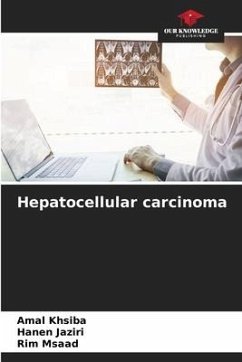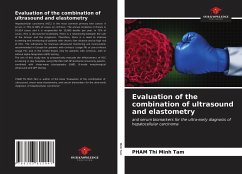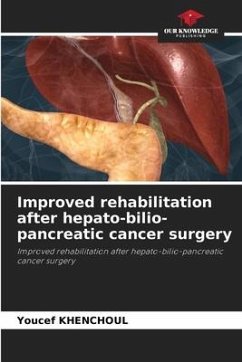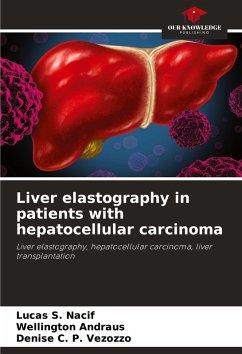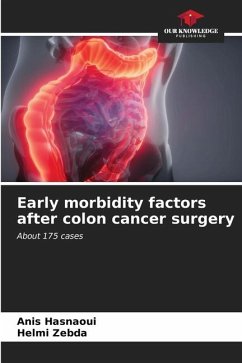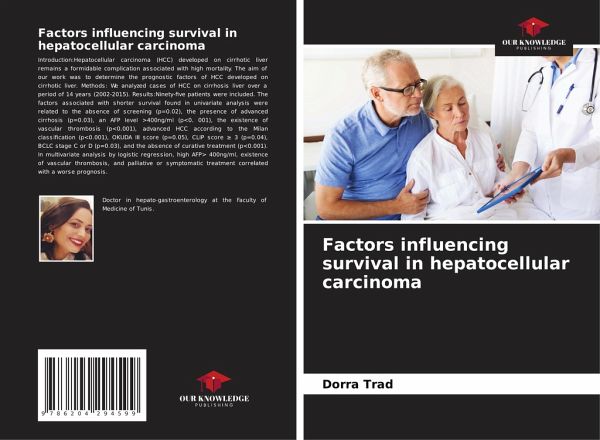
Factors influencing survival in hepatocellular carcinoma
Versandkostenfrei!
Versandfertig in 6-10 Tagen
27,99 €
inkl. MwSt.

PAYBACK Punkte
14 °P sammeln!
Introduction:Hepatocellular carcinoma (HCC) developed on cirrhotic liver remains a formidable complication associated with high mortality. The aim of our work was to determine the prognostic factors of HCC developed on cirrhotic liver. Methods: We analyzed cases of HCC on cirrhosis liver over a period of 14 years (2002-2015). Results:Ninety-five patients were included. The factors associated with shorter survival found in univariate analysis were related to the absence of screening (p=0.02), the presence of advanced cirrhosis (p=0.03), an AFP level >400ng/ml (p
Introduction:Hepatocellular carcinoma (HCC) developed on cirrhotic liver remains a formidable complication associated with high mortality. The aim of our work was to determine the prognostic factors of HCC developed on cirrhotic liver. Methods: We analyzed cases of HCC on cirrhosis liver over a period of 14 years (2002-2015). Results:Ninety-five patients were included. The factors associated with shorter survival found in univariate analysis were related to the absence of screening (p=0.02), the presence of advanced cirrhosis (p=0.03), an AFP level >400ng/ml (p<0. 001), the existence of vascular thrombosis (p<0.001), advanced HCC according to the Milan classification (p<0.001), OKUDA III score (p=0.05), CLIP score 3 (p=0.04), BCLC stage C or D (p=0.03), and the absence of curative treatment (p<0.001). In multivariate analysis by logistic regression, high AFP> 400ng/ml, existence of vascular thrombosis, and palliative or symptomatic treatment correlated with a worse prognosis.



